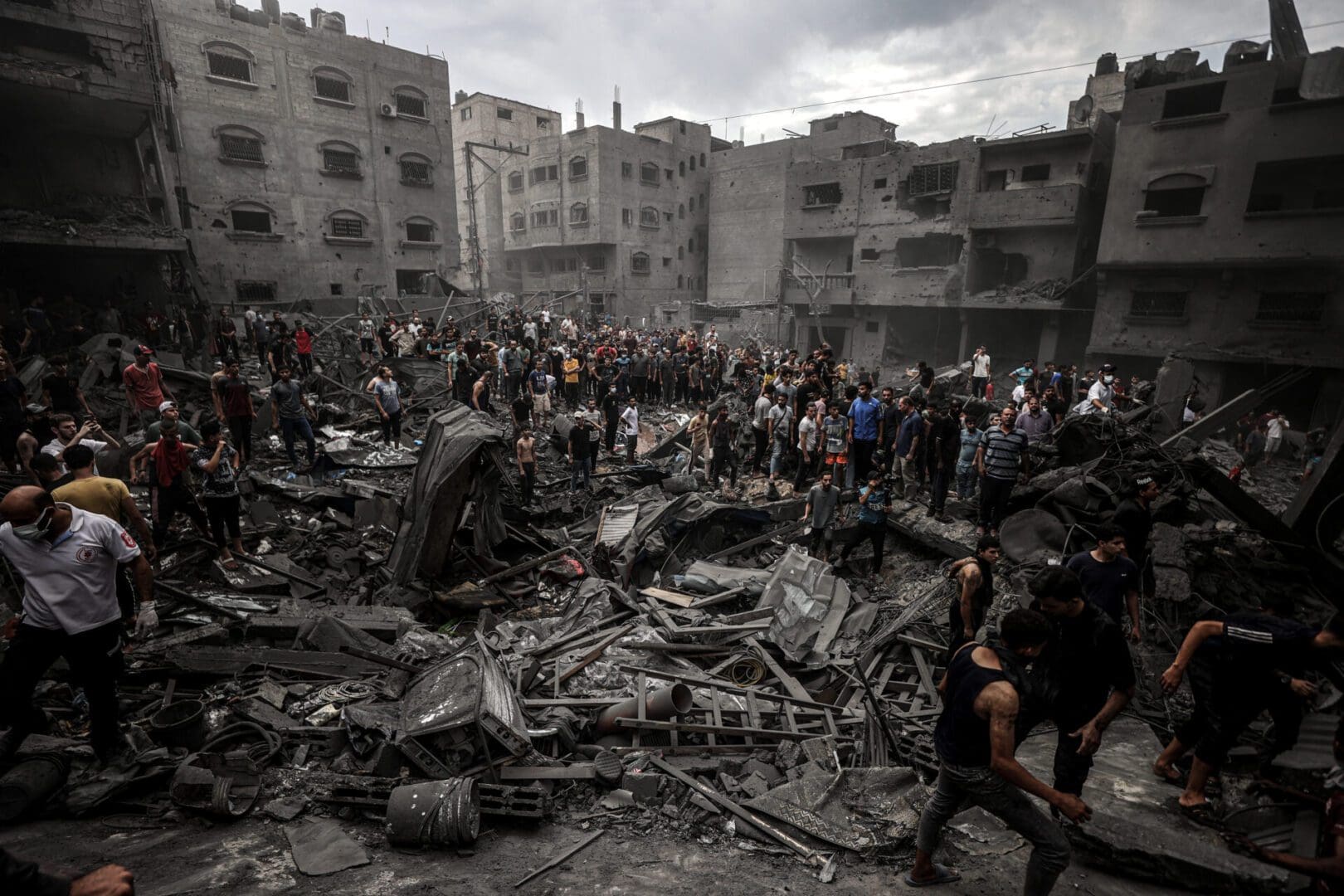“Palestinian civilians are already besieged in the occupied Gaza Strip and are now also trapped in a complete communications blackout, with data from internet monitoring networks reporting signals rapidly failing as air and ground strikes reportedly intensify, in particular in the northern and central part of the Strip. We call on Israel to put an immediate end to indiscriminate and disproportionate attacks which have already killed and harmed so many civilians, including over 3,000 children. Internet and telecommunications infrastructure must also be restored as a matter of urgency, to allow rescue operations amidst Israeli pounding airstrikes and expanding ground operations.
“At Amnesty International we have lost contact with our colleagues in Gaza, and other human rights organizations have found it increasingly challenging to document violations due to the intensity of Israel’s attacks and restrictions on communications. This communications blackout means that it will be even more difficult to obtain critical information and evidence about human rights violations and war crimes being committed against Palestinian civilians in Gaza, and to hear directly from those experiencing the violations.”
Responding to the United States’ vote against the United Nations General Assembly resolution that sought to advance an immediate, durable and sustained humanitarian truce in the Occupied Palestinian Territories and Israel, Amnesty International USA’s Executive Director Paul O’Brien said:
“Amnesty International USA supports a ceasefire as the most effective way to save lives, prevent further forced displacement and civilian suffering, and enable the safe release of hostages. While both President Biden and Secretary Blinken have acknowledged a humanitarian pause should be considered, the United States voted no on a UN resolution that could effectively move such efforts forward.
“After intense negotiations of language to try to address the United States’ concerns about the draft resolution and failure of its joint amendment with Canada, the United States chose to still oppose the resolution. The US did so as the Gaza Strip is plunged into a total communications blackout, and a humanitarian catastrophe continues to unfold unabated.
“Palestinians in Gaza are caught in the crosshairs of an Israeli military offensive. Amnesty International has already documented evidence of war crimes by Israeli forces and Hamas and other armed groups. An urgent and immediate ceasefire is needed to prevent further deaths. Because of its close relationship with the Israeli government, the United States has an outsized role and responsibility to take all reasonable steps to ensure civilians are protected and a humanitarian collapse is prevented.”
Background:
Amnesty International reiterates its urgent call for an immediate ceasefire by all parties to the conflict in the occupied Gaza Strip and Israel to prevent further loss of civilian lives and to ensure access to life-saving aid for people in Gaza amidst an unprecedented humanitarian catastrophe.
Recent Internet Outage Detection & Analysis (IODA) reports established that Netstream, one of the last remaining network providers in Gaza, went dark on Thursday 26 October, while also reporting a completed outage of Netstream signals at 12:00 PM local time on Friday 27 October. As of Friday, 15 ASN/ISPs (Internet Service Providers) have faced near-complete outages, affecting their landline, cellular and internet communications. The Palestine Red Crescent Society reports having lost contact with its entire operations room in the Gaza Strip, severely hampering its emergency services, including tending to victims of attacks.
An intentional shutdown happens when a state or another actor disrupts the internet for a specific population, or within a specific region. Shutdowns take a variety of forms. Authorities may slow down the internet to make access difficult, or they may order ISPs to shut down services completely.
This outage in Gaza comes against the backdrop of indiscriminate attacks on homes and civilian areas, and extensive destruction of civilian infrastructure, including critical communication infrastructure. This is compounded by a catastrophic humanitarian crisis stemming from Israel’s 16-year-long illegal blockade of Gaza, which since 9 October has been further tightened into a total siege that has cut Gazans off from food, water, electricity, fuel and humanitarian aid.
As announced Friday evening, the Israeli army expanded its ground activities in the occupied Gaza Strip. Access to the internet and telecommunications networks is essential to the protection of human rights, especially in times of conflict. Amnesty International’s research has previously shown that internet shutdowns facilitate repression and violations of international human rights and humanitarian law.
Contact: [email protected]

